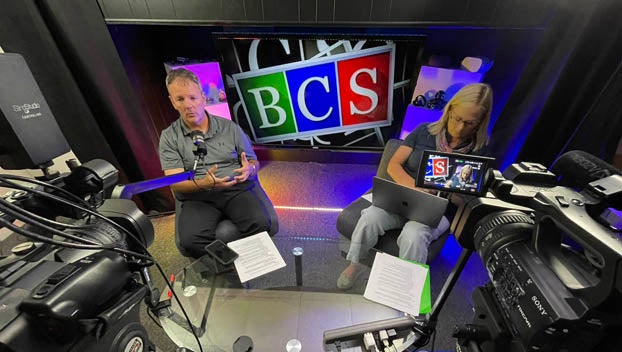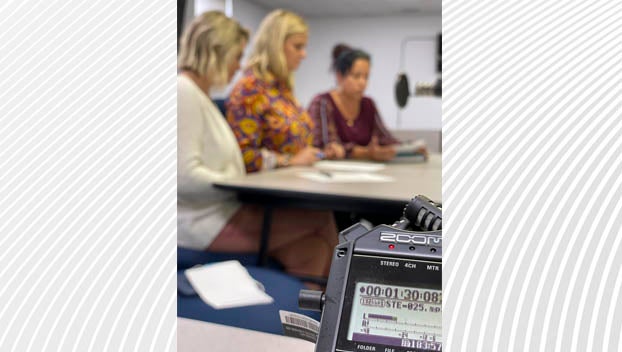BCS using new tools to improve outreach, encourage dialogue
Published 6:05 pm Monday, October 11, 2021
|
Getting your Trinity Audio player ready...
|
COVID-19 protocols. Mental health. College preparedness. Internet safety. Curriculum development.
Beaufort County Schools administrators deal with questions and comments on those topics and many more on a daily basis. The school system has implemented new communications initiatives in an effort to answer those questions and provide important information to its families.
BCS Director of Community and Family Engagement Ashley Padgett and Director of Digital and Innovative Technology Paul Huggins are spearheading the production of a series of short podcasts, titled “F.A.C.E.-Time with Ashley.” The acronym is for Family and Community Engagement.
The school system is also hosting monthly family forums, where administrators and staff members speak and answer questions about many of the aforementioned topics. Mental health is the focus of the next forum.
“We use it as community outreach so people know what’s going on with Beaufort County Schools,” Huggins said. “Especially since the pandemic, communication has gotten crossed and misunderstood.”
The podcasts and forums can be used to cover broad topics — social work or nutrition, for example — but they can also be used to provide quick information about recent changes or new initiatives. For instance, when the school board voted to revert to an optional mask policy for students and staff, Superintendent Matthew Cheeseman explained what that change entailed in a podcast the next day.
“We just felt like it needed to be an extra layer,” Padgett said.
“The people who listen to it hear our superintendent say it,” Huggins added. “That’s the good thing. They don’t read it in a post we make; they don’t read it in an email. They hear him say it, and I think that is what really jumped. So we’re going to try to get Mr. Cheeseman on more.”
For all of the communications initiatives — particularly for the podcasts — the school system is looking to give its on professionals a place to share their thoughts and expertise.
“When we did the mental health one, we had (Project AWARE Director) Renee (Boyd) and (Behavior Support Coordinator) Emily Bland on,” Padgett said. When we do social workers, I’m not talking about social work; the social workers are talking about social work.”
As for the family forums, the school system held one near the beginning of the current school year. That forum, which was broadcast on Facebook Live and YouTube, allowed families to learn and ask questions about how the new school year would look with various COVID-19 protocols in place.
They then hosted a second family forum, this time face-to-face, in which a guest speaker taught parents about signs to look for that might indicate if a student is using drugs or alcohol. Padgett said that forum was less attended than the previous one, but those who were there “came with a purpose.”
“I guess what we’re finding after COVID is people are used to everything being virtual — church, doctor’s appointments, things like that,” Padgett said.
“We get a lot more participation when we just go virtual,” Huggins said.
The next forum, which is set to be taped in two weeks, will focus on mental health. It will be published virtually, but will not be live. Due to the nature of the topic, and the impact it has had locally within the past several months, questions won’t be taken live like they were before. Families will be able to fill out a survey in which they can submit questions to be answered in the forum.
“This is all really part of Mr. Cheeseman’s vision of public community comment, and our board’s vision of that community involvement,” Padgett said. “These are ways we can communicate with all of our stakeholders.
“You might have a PTA meeting or you might have a Title I meeting at school, and typically those are just the family members, the direct family. But there are other people in our school, in our community that are involved or want to be involved with our educational cycle.”







